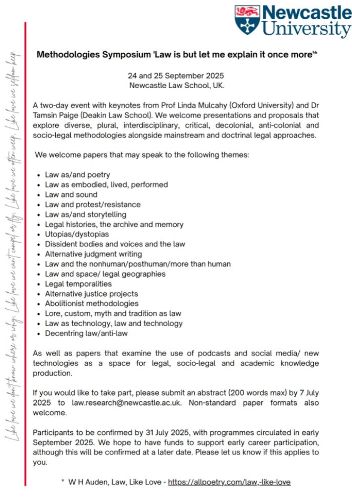(Elizabeth) Chloe Romanis
@ecromanis.bsky.social
930 followers
610 following
61 posts
Associate Professor in Biolaw @ Durham Law 🤓 researching reproduction and the body (abortion, gestation, ectogestation, pregnancy, birth, novel technologies) ✍️ co-EIC Medical Law International 📓 she/her/dr
Posts
Media
Videos
Starter Packs
Reposted by (Elizabeth) Chloe Romanis
Reposted by (Elizabeth) Chloe Romanis
Zoe Tongue
@whiterxbbit.bsky.social
· Apr 22
Matilda Fitzmaurice
@matildaf.bsky.social
· Apr 22
Reposted by (Elizabeth) Chloe Romanis
Reposted by (Elizabeth) Chloe Romanis
Reposted by (Elizabeth) Chloe Romanis
Zoe Tongue
@whiterxbbit.bsky.social
· Mar 10






